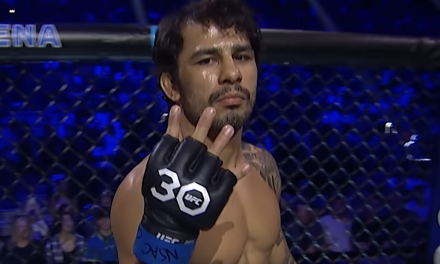In a startling development from Florida, it has been reported that Advanced Placement (AP) Psychology classes are being removed from school curriculums due to the inclusion of LGBTQ+ related content, citing Governor DeSantis’ anti-LGBTQ+ policy. This move is profoundly troubling and sets a concerning precedent for educators everywhere. This attempt to sanitize education on certain aspects of human existence stands in stark contrast to the foundational principles of education – promoting understanding, encouraging tolerance, and fostering empathy. Education, at its best, is a tool that broadens perspectives, not a mechanism for censorship or selective dissemination of knowledge. Including LGBTQ+ content in the AP Psychology curriculum isn’t a political statement, but an empirical fact. Gender and sexual identities form a significant aspect of psychological studies and understandings. Dismissing these essential facets of the human condition devalues the scientific basis of psychology and hampers students’ understanding of comprehensive human behavior. A fundamental objective of psychology is to provide students with an understanding of human diversity and the myriad ways in which individuals can experience and express their identities. By eliminating LGBTQ+-related content, Florida schools are essentially distorting the curriculum, presenting a partial view of humanity that is inadequate in preparing students for the multi-faceted realities of the world.
It’s essential to understand that the primary victims of this decision are students. Education is meant to prepare students for their future, equipping them with the knowledge and skills to navigate an increasingly diverse world. Excluding LGBTQ+ content is denying students access to a full range of human experiences and understanding. The consequences of this will be felt not just in exam scores, but more importantly, in their ability to navigate a world that demands empathy and understanding for all, irrespective of gender or sexual orientation. This action by Florida schools also signifies a disturbing infringement on academic freedom. Teachers and educators need to have the liberty to present their students with a balanced and comprehensive picture of the world, something that is not possible when crucial content is eliminated based on political grounds. If educators are forced to conform to a curriculum that is inherently biased and incomplete, it undermines the integrity of the educational process. Furthermore, this policy not only affects the educational ecosystem but could also significantly impact the mental health of LGBTQ+ students. Schools should be safe and affirming spaces for all students. Excluding LGBTQ+ content from the curriculum can send a harmful message to these students that their identities are abnormal or unworthy of discussion, leading to feelings of marginalization and isolation.

Collaborative Dialogue
The way forward must begin with dialogue. Instead of pushing a narrow agenda, there must be a conversation between educators, policymakers, students, and parents to reach a comprehensive understanding of what a well-rounded education should include. The focus should be on what’s best for students rather than political maneuvering. The decision to remove LGBTQ+ content from Florida’s AP Psychology classes, citing Governor DeSantis’ anti-LGBTQ+ policy, has stirred emotions and opinions on both sides of the debate. It is precisely in such contentious situations that collaborative dialogue becomes essential.
What Is Collaborative Dialogue?
Collaborative dialogue is an open and inclusive process where stakeholders come together to discuss issues with the aim of mutual understanding rather than winning an argument. It recognizes that differing perspectives can coexist and that reaching a common ground may require compromise and empathy.
Why Collaborative Dialogue Is Essential
Multiple Perspectives: This issue involves educators, policymakers, students, parents, and the LGBTQ+ community. Collaborative dialogue ensures that all voices are heard and that diverse perspectives are considered.
Bridging Divides: By focusing on shared values and mutual respect, collaborative dialogue can bridge ideological divides and foster a sense of community. It promotes the idea that differences in opinion need not lead to division but can result in enriched understanding.
Encouraging Empathy: Collaborative dialogue allows participants to walk in others’ shoes, understanding their concerns, fears, and hopes. It fosters empathy and can lead to more compassionate solutions.
Creating Solutions: Instead of settling into entrenched positions, collaborative dialogue encourages creative problem-solving. It is a pathway to finding solutions that balance diverse needs and concerns.
How to Foster Collaborative Dialogue
Open Forums and Discussions: Schools, universities, and local communities can host open forums where stakeholders can discuss their views openly, guided by trained moderators.
Inclusion of All Stakeholders: From students to teachers, parents to policymakers, and especially members of the LGBTQ+ community, all stakeholders should have an opportunity to participate in these dialogues.
Educational Workshops: Workshops aimed at educating participants about the facts related to LGBTQ+ issues, psychological studies, and the role of education can create a more informed conversation.
Mediated Conversations: In cases where emotions run high, professional mediators can guide the conversation, ensuring that it remains constructive.
Ongoing Communication: Collaborative dialogue is not a one-time event but an ongoing process. Regular follow-ups, updates, and continued engagement are necessary to build lasting understanding and solutions.
Emphasis on Inclusivity
Inclusive education isn’t about promoting any particular ideology; it’s about preparing students for life in a diverse world. Policies that aim at excluding certain content based on personal or political beliefs hinder this goal. Emphasizing inclusivity in education ensures that students learn to respect and empathize with people different from themselves. The question of inclusivity in education is not just about embracing various cultural, social, and personal backgrounds; it’s about recognizing and celebrating the full spectrum of human experience. This includes the acknowledgment and understanding of LGBTQ+ identities, as seen in the recent controversy surrounding Florida’s AP Psychology classes.
Why Inclusivity Matters
Reflecting the Real World: The world is a mosaic of identities, beliefs, and experiences. An inclusive education reflects this diversity, preparing students for life in a multifaceted world.
Promoting Empathy and Respect: Inclusivity helps students learn to empathize with and respect those who are different from them. It’s not just about tolerating differences, but about embracing and celebrating them.
Enhancing Critical Thinking: By presenting diverse viewpoints, inclusivity promotes critical thinking and helps students see issues from various angles, encouraging more nuanced and mature perspectives.
Supporting Mental and Emotional Well-Being: Inclusive environments foster a sense of belonging for all students, including those who identify as LGBTQ+. This leads to increased self-esteem, confidence, and overall well-being.
How to Emphasize Inclusivity
Comprehensive Curriculum Design: The curriculum should reflect the diversity of human experience, including LGBTQ+ content where relevant. This includes subjects like psychology, history, literature, and social studies.
Training and Professional Development: Educators should receive training on how to create inclusive environments, address diverse needs, and facilitate discussions on sensitive topics.
Student Engagement: Encouraging students to participate in discussions about inclusivity, and involving them in the creation of inclusive policies, ensures that their voices are heard and their needs are met.
Community Outreach and Collaboration: Schools should work with community organizations that specialize in LGBTQ+ issues, human rights, and diversity education to ensure a well-rounded approach.
Monitoring and Evaluation: Regular monitoring of inclusivity measures, along with feedback from students, parents, and teachers, ensures that inclusivity efforts are effective and responsive to the needs of the community.
Inclusive Resources: Utilizing textbooks, materials, and resources that reflect diverse perspectives encourages students to engage with and understand a broader range of human experiences.
Potential Challenges
While the emphasis on inclusivity is vital, it can also present challenges. Resistance from confident parents or community members, lack of resources, or inadequate training may hinder efforts. Collaborative dialogue, community engagement, and continuous education can help overcome these obstacles.
Protecting Academic Freedom
Teachers should be allowed to teach, and students should be allowed to learn without interference from political ideologies. Striking a balance between responsible regulation and academic freedom is essential in maintaining the integrity of the educational system. Legal measures to protect these freedoms could be a path toward ensuring that education remains unbiased and comprehensive.
Support for LGBTQ+ Students
The specific targeting of LGBTQ+ content is particularly harmful to students who identify as LGBTQ+. Schools should be implementing measures to make these students feel seen, respected, and safe rather than taking actions that marginalize them. Support systems, counseling, and inclusive policies are essential to ensure the well-being of all students.
Global Awareness
Educators around the world should take note of the situation in Florida and prepare to stand up against similar attempts to politicize education in their regions. There’s strength in unity, and a global network of educators committed to the principles of inclusivity, diversity, and academic freedom can make a powerful statement.
Why We Must Take a Stand
Upholding Human Dignity: Anti-LGBTQ+ policies are a direct affront to human dignity and the universal principles of equality and non-discrimination. We must stand up to these policies to affirm that every individual deserves respect and acknowledgment.
Protecting Education: Education should be a place of exploration, understanding, and growth. Any policy that curtails the ability to learn about the diverse facets of humanity undermines the very essence of education.
Building a Compassionate Society: A society that marginalizes or suppresses certain groups based on sexual orientation or gender identity cannot be considered just or compassionate. Standing up against anti-LGBTQ+ policies is a step toward building a more empathetic and inclusive community.
Global Resonance: The actions taken in Florida resonate globally. Taking a stand in this context is not only about affecting change locally but also setting a positive example for other regions grappling with similar issues.
Building a Better World by Building a More Inclusive One
The removal of LGBTQ+ content from Florida’s AP Psychology classes is not just a localized issue; it’s a global concern that speaks to the core values of education. The lessons to be learned from this situation extend far beyond the classroom, offering a reflection on society’s priorities and values. In an era where empathy, understanding, and compassion are needed more than ever, the decision to eliminate LGBTQ+ content from the curriculum is a step backward. It’s a reminder that education is a fragile ecosystem, susceptible to the winds of political change. The true power of education lies in its ability to foster growth, understanding, and acceptance among future generations. To uphold these principles, educators must rally together, ensuring that political agendas do not compromise the integrity of the learning experience. Education should remain a sanctuary for knowledge, a beacon of truth, and a stronghold of inclusivity. The challenge is significant, but so is the cause. Together, educators can ensure that education remains true to its purpose, promoting a future where diversity is not just tolerated but celebrated.
Standing Up Against Anti-LGBTQ+ Policies: A Call to Action for a More Inclusive Society
The recent decision to cut an AP Psychology class in Florida schools due to the inclusion of LGBTQ+-related content, aligning with Governor DeSantis’ anti-LGBTQ+ policy, serves as a stark reminder of the battles still being fought for inclusivity and human rights. It is not merely a local issue; it is emblematic of a broader struggle that calls for clear understanding, unified response, and unwavering commitment to the principles of inclusion and diversity. Keep in mind Florida is not the only state that has introduced more anti-LGBTQ+ policies; this is a national issue as we need to do our part to protect the quality of life of all Americans, including those that are part of the LGBTQ+ community.






























South Florida Media Comments